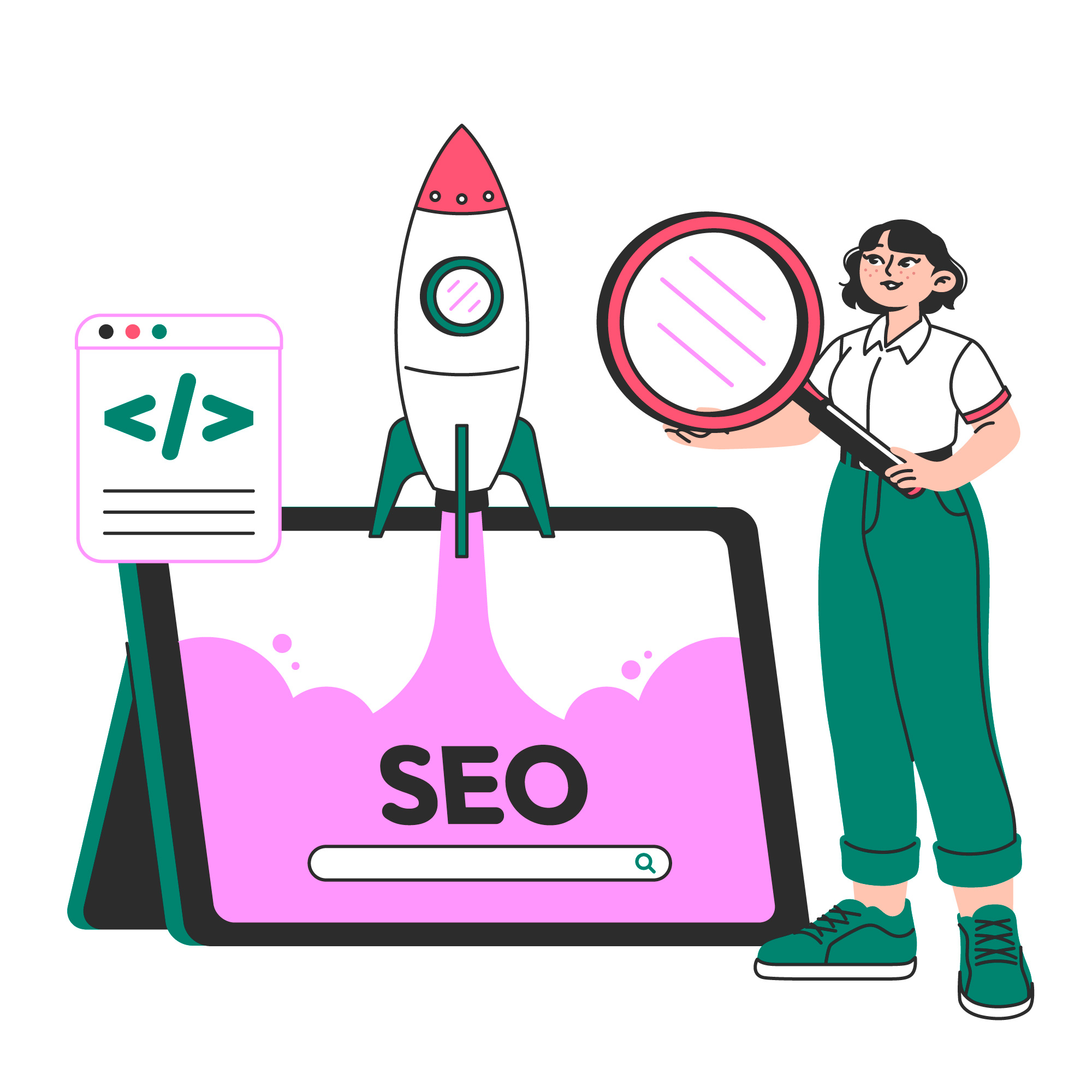In the fast-paced digital world, where attention spans are shrinking and competition is growing, website speed is no longer a luxury—it’s a necessity. The time it takes for your website to load can make or break the user experience, directly influencing how search engines rank your site. Understanding the relationship between website speed and search rankings is crucial for businesses aiming to stay ahead in the competitive online landscape.
Why Website Speed Matters
Website speed, often referred to as page load time, is the duration it takes for a webpage to fully display its content. From a user perspective, faster websites are more enjoyable to browse. But from a technical perspective, speed is a critical factor that search engines like Google consider when ranking websites.
User Experience and Bounce Rates
A slow website frustrates users, leading to higher bounce rates—the percentage of visitors who leave your site after viewing just one page. Studies show that if a page takes more than three seconds to load, 40% of users will abandon it. This high bounce rate signals to search engines that your site may not be providing a satisfactory user experience, negatively impacting your rankings.
Search Engine Algorithms
Google’s algorithms prioritize websites that deliver fast, seamless experiences. With the introduction of Core Web Vitals, website speed is now even more critical. Metrics like Largest Contentful Paint (LCP), First Input Delay (FID), and Cumulative Layout Shift (CLS) assess various aspects of a site’s performance and user experience. Sites that excel in these metrics are rewarded with better visibility on search engine results pages (SERPs).
The Impact of Website Speed on SEO
Improving your website’s speed can lead to significant SEO benefits. Here’s how:
Faster Crawling and Indexing
Crawlers are used by search engines to examine and index the content of your website. A faster-loading site makes it easier for these crawlers to do their job efficiently. If your site is slow, crawlers may not be able to index all your pages, which can hurt your rankings.
Enhanced Mobile Rankings
With the rise of mobile-first indexing, website speed on mobile devices has become a top priority. Mobile users expect even faster load times than desktop users, making speed optimization crucial for maintaining and improving your rankings in mobile searches.
Increased Engagement and Conversions
A faster website encourages users to stay longer, explore more pages, and engage with your content. This increased engagement signals search engines that your site is valuable and relevant, boosting its ranking potential. Additionally, faster load times lead to higher conversion rates, making speed optimization a win-win.
Common Causes of Slow Websites
Before you can fix speed issues, it’s essential to identify what’s slowing your site down. Common culprits include:
- Large Image Files: Unoptimized images can significantly slow down page load times.
- Excessive HTTP Requests: Too many elements (e.g., scripts, images, CSS files) increase loading time.
- Inefficient Code: Poorly written or excessive code can bog down your site’s performance.
- Outdated Hosting: A slow server can cripple your website’s speed.
- Lack of Caching: Without caching, browsers need to reload all page elements every time a user visits.
Tips to Improve Website Speed
Optimizing website speed doesn’t have to be overwhelming. Here are actionable steps you can take:
1. Optimize Images
Reduce file sizes without sacrificing quality by compressing photos with programs like TinyPNG or ImageOptim. Use modern formats like WebP for faster loading.
2. Minimize HTTP Requests
Reduce the number of elements on your page by combining CSS and JavaScript files, and removing unnecessary plugins or widgets.
3. Enable Browser Caching
Caching allows returning visitors to load your site faster by storing parts of your website locally. Configure caching through tools like WP Rocket or manual server settings.
4. Use a Content Delivery Network (CDN)
A CDN distributes your site’s content across multiple servers worldwide, ensuring faster load times by serving data from the nearest server to the user.
5. Upgrade Your Hosting Plan
Invest in high-performance hosting solutions that offer faster server response times. Consider options like VPS hosting or dedicated servers for optimal speed.
6. Minify Code
Streamline your HTML, CSS, and JavaScript by removing unnecessary spaces, comments, and characters. Tools like Minify or UglifyJS can help.
Tools to Test Website Speed
Several tools can help you evaluate and improve your site’s speed:
- Google PageSpeed Insights provides detailed reports and suggestions for speed optimization.
- GTmetrix analyzes your site’s speed and highlights areas for improvement.
- Pingdom offers real-time speed testing and performance tracking.
- Lighthouse: A Chrome extension for evaluating speed, accessibility, and SEO.
Real-World Success Stories
Example 1: E-commerce Website
An online retailer reduced its page load time from 5 seconds to 2 seconds by compressing images and enabling browser caching. The result? A 25% increase in conversions and a noticeable improvement in search rankings.
Example 2: Content Blog
A blog experiencing high bounce rates optimized its mobile speed through code minification and a CDN. Within weeks, the site saw a 30% increase in organic traffic.
The Future of Website Speed and SEO
As technology evolves, website speed will remain a cornerstone of SEO. Emerging trends like 5G connectivity, progressive web apps (PWAs), and artificial intelligence-driven optimizations will continue to shape how speed impacts rankings.
Wrapping It Up
Website speed is more than a technical metric; it’s a gateway to better user experiences, higher engagement, and improved search rankings. By prioritizing speed optimization, you not only satisfy your users but also signal to search engines that your site is worth showcasing.
Start optimizing your website speed today with the tips and tools outlined in this post. The sooner you act, the faster you’ll see results—literally and figuratively. In the race to the top of the SERPs, speed is your best ally. Are you ready to accelerate your digital presence?


Leave a Reply